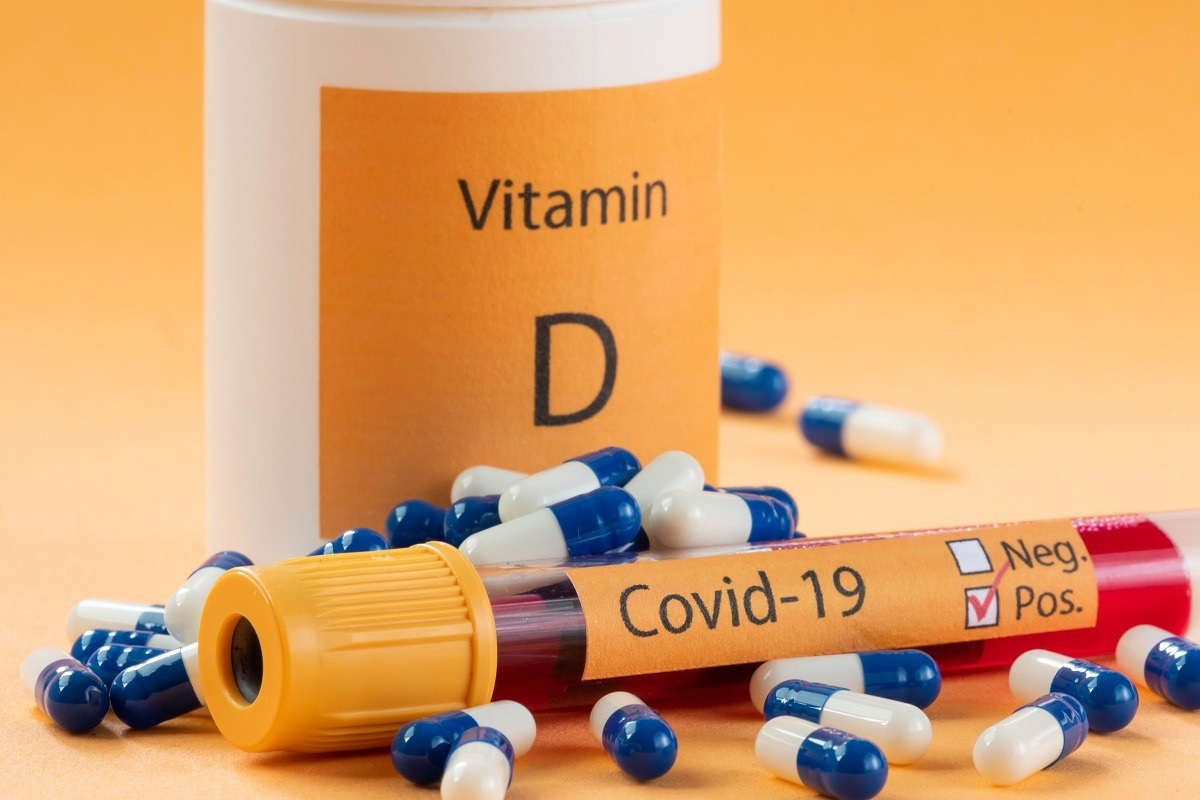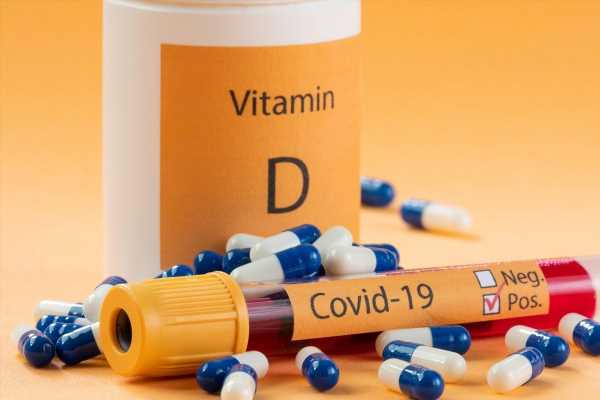In a recent study posted to the medRxiv* preprint server, researchers assessed the impact of vitamin D supplementation on the efficacy of severe acute respiratory syndrome coronavirus 2 (SARS-CoV-2) vaccines.

Coronavirus disease 2019 (COVID-19) vaccination has played a critical role in controlling the COVID-19 pandemic. However, studies have reported the waning of vaccine effectiveness and efficacy in the months after vaccination, particularly among elderly individuals. Hence, there is an urgent need to identify immunomodulatory adjuvants that can improve SARS-CoV-2 vaccine immunogenicity.
About the study
In the present study, researchers explored three sub-studies that investigated the impact of vitamin D replacement on the efficacy of SARS-CoV-2 vaccines.
The team performed three sub-studies conducted within the CORONAVIT randomized controlled trial. Among these, sub-study 1 performed vaccine efficacy analysis to assess the effect of vitamin D supplementation on the risk of breakthrough COVID-19 infection among immunocompetent participants vaccinated with two SARS-CoV-2 vaccine doses. Sub-study 2 performed a dried blood spot analysis that assessed the impact of supplementing vitamin D on combined immunoglobulin G (IgG), IgA, and IgM (IgGAM) antibody responses to the SARS-CoV-2 spike (S) protein. Furthermore, sub-study 3 conducted a venous blood analysis that revealed the impact of vitamin D supplements on cellular responses and neutralizing antibodies.
The study involved 6200 individuals residing in the UK who were aged 16 years and above who were randomized to be treated with a postal vitamin D test, which was followed by a lower dose or higher dose supplementation. All the participants who were vaccinated with a minimum of two SARS-CoV-2 vaccine doses provided a postal dried blood spot sample which was used to assess the combined IgGAM antibody responses to the SARS-CoV-2 S protein. Moreover, 101 participants also provided venous blood samples to assess the cellular responses and levels of neutralizing antibodies to SARS-CoV-2.
The inclusion criteria for the vaccine efficacy analysis were participation in the CORONAVIT trial and vaccination with a minimum of two SARS-CoV-2 vaccine doses. On the other hand, the participants eligible for dried blood spot analysis were included in sub-study 1, had consented to participate in the serology study performed after vaccination, and had anti-S titer results available after the second vaccination and before the booster dose administration. The venous blood analysis included participants eligible for sub-study 1, consented to post-vaccination participation and provided valid neutralizing antibody and cellular response data.
The eligible participants were subsequently randomized before determining the concentrations of 25(OH)D in their capillary blood. Participants who had a 25(OH)D concentration of less than 75 nmol/L were given a six-month supply of capsules comprising either 800 IU or 3200 IU vitamin D3. In comparison, those having 25(OH)D concentrations of 75 nmol/L or above were treated with a second postal vitamin D test two months after the first test.
The primary outcome of sub-study 1 was breakthrough COVID-19 infection which was followed up two weeks after the administration of the second vaccine dose for up to six months thereafter or until the diagnosis of a breakthrough infection, whichever was earlier. The team obtained details related to vaccination and breakthrough infection through online questionnaires answered by the participants at monthly intervals.
Results
The study results showed that among the 6200 CORONAVIT trial participants, 45.3% were immunized with the primary SARS-CoV-2 vaccination program, including 69.3% who were vaccinated with two doses of ChAdOx1 vaccine, while 30.7% were vaccinated with two BNT162b2 vaccine doses.
For the participants whose baseline vitamin D concentrations were assessed, the average 25(OH)D level was 39.9 nmol/L. On the other hand, participants that were assessed for end-study vitamin D concentrations showed that the follow-up 25(OH)D concentrations were higher among the participants who were treated with lower-dose supplements as compared to the untreated participants. Furthermore, follow-up 25(OH)D concentrations were higher among the participant cohort that was treated with higher dose supplements as compared to the untreated cohort.
Breakthrough COVID-19 infections were observed in 174 participants from sub-study 1. The team also observed no variations between the vitamin D-supplemented and non-supplemented cohorts concerning combined anti-S IgGAM in average post-vaccination titers. Furthermore, the participants who provided blood samples showed no substantial differences between the treated and untreated participants with respect to average neutralizing antibodies titers.
Overall, the study findings showed that daily supplementation with 800 IU or 3200 IU vitamin D3 effectively increased the concentrations of circulating 25(OH)D. However, neither of the doses impacted the efficacy of the SARS-CoV-2 vaccines.
*Important notice
medRxiv publishes preliminary scientific reports that are not peer-reviewed and, therefore, should not be regarded as conclusive, guide clinical practice/health-related behavior, or treated as established information.
- David A Jolliffe, Giulia Vivaldi, Emma S Chambers, Weigang Cai, Wenhao Li, Sian E Faustini, Joseph M Gibbons, Corinna Pade, Alex Richter, Aine McKnight, Adrian R Martineau. (2022). Influence of vitamin D supplementation on SARS-CoV-2 vaccine efficacy and immunogenicity. medRxiv. doi: https://doi.org/10.1101/2022.07.15.22277678 https://www.medrxiv.org/content/10.1101/2022.07.15.22277678v2
Posted in: Medical Science News | Medical Research News | Disease/Infection News
Tags: Antibodies, Antibody, Blood, Coronavirus, Coronavirus Disease COVID-19, covid-19, Efficacy, Immunoglobulin, Immunomodulatory, Pandemic, Protein, Respiratory, SARS, SARS-CoV-2, Serology, Severe Acute Respiratory, Severe Acute Respiratory Syndrome, Supplements, Syndrome, Vaccine, Vitamin D

Written by
Bhavana Kunkalikar
Bhavana Kunkalikar is a medical writer based in Goa, India. Her academic background is in Pharmaceutical sciences and she holds a Bachelor's degree in Pharmacy. Her educational background allowed her to foster an interest in anatomical and physiological sciences. Her college project work based on ‘The manifestations and causes of sickle cell anemia’ formed the stepping stone to a life-long fascination with human pathophysiology.
Source: Read Full Article






